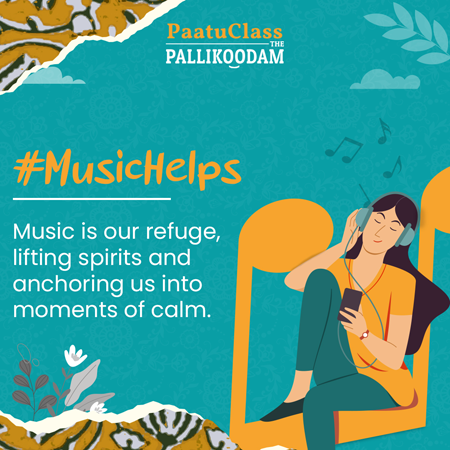The Healing Powers of Music:
Understanding its Therapeutic Benefits
For many, music is more than just a form of entertainment. It serves as a trusted friend, providing solace during moments of loneliness and offering understanding when words fail. The melodies, lyrics, and rhythms of music become a source of strength and comfort, helping individuals navigate the complexities of their emotions. Let’s talk about this ultimate support beam and its therapeutic benefits that extend far beyond the realm of sound.

Music Therapy: A Pathway to Healing
Music therapy has emerged as a powerful tool for emotional and physical healing. It harnesses the inherent healing properties of music to facilitate personal growth, emotional expression, and overall well-being. Through carefully curated musical experiences, individuals find solace, relief, and a sense of connection.
How Does Music Therapy Exactly Work?
Music therapy, a blossoming field, utilizes the power of music to evoke emotions, relax, stimulate, and heal. Certified music therapists, skilled musicians, adeptly blend various musical styles to suit individual needs, whether it’s for physical rehab or meditation – be it electropop or grand opera.
Evidence-backed Benefits of Music Therapy:
- Harmony in Healing: Studies reveal that music reduces anxiety and the need for sedatives in medical procedures like colonoscopies and cardiac angiography. It also eases discomfort during surgery and minimizes opioid painkiller usage in recovery.
- Melodic Speech Recovery: For stroke or brain injury patients, music therapy aids speech rehabilitation by engaging the right-brain singing ability, bypassing left-brain damage. Ex-Congresswoman Gabby Giffords used this technique to regain speech after a brain injury.
- Symphony against Cancer’s Side Effects: Soothing melodies mitigate anxiety, nausea, and vomiting in cancer patients undergoing chemotherapy and radiotherapy.
- Melody of Relief: From acute to chronic pain, music therapy diminishes pain perception, lowers pain medication usage, alleviates depression, and fosters a sense of control.
- Musical Memories for Dementia: Music therapy preserves engagement in dementia patients, triggering memories, reducing agitation, improving communication, and enhancing physical coordination

The Mental Health Benefits of Singing
Engaging in the act of singing goes beyond passive listening and can have a profound impact on our mental well-being. Singing stimulates the release of endorphins, the “feel-good” hormones in our brain, promoting happiness and a sense of well-being. Moreover, singing in a group setting enhances social connections, which can be particularly beneficial for individuals experiencing feelings of loneliness or isolation. Singing provides a joyful activity and a scientifically proven way to support mental health.
Physical Benefits of Music Therapy:
Beyond its emotional impact, music therapy has also shown positive physical effects. Recent studies have unveiled the remarkable ways music’s healing powers can aid in recovery, particularly in medical settings. Let’s explore some of the physical benefits of music therapy:
- Endorphins: Music releases endorphins, natural pain-blocking chemicals, into the bloodstream, alleviating discomfort and promoting a sense of well-being.
- Immunoglobulin A: Listening to music has been found to increase the presence of immunoglobulin A cells in the body, bolstering the immune system’s ability to combat potential illnesses and support the healing process.
- Cortisol Reduction: Engaging in relaxing music has shown the ability to lower cortisol, a stress hormone, leading to decreased anxiety and stress levels, which are beneficial before, during, and after medical procedures.
- Blood Pressure: Listening to calming rhythms and sounds in music has been found to lower blood pressure, promoting overall cardiovascular health.
- Heart Rate: The tempo and beat of the music can influence our heart rate, either increasing or decreasing it. The right rhythm can evoke relaxation or energise our bodies, harnessing the power of music to enhance physical well-being.
The Healing Powers of Music
At The Pallikoodam, our esteemed instructor and musical expert, Ranjith Govind, engages in enriching conversations with talented artists through our series called Musician In Conversation (M.I.C). Recently, we had the privilege of hosting the talented artist Sireesha, as she explored the profound connection between music, meditation, and mental health. In this captivating episode, Sireesha beautifully highlighted how certain musical practices can enhance mental well-being, offering valuable insights for musicians and anyone seeking inner peace and balance in life.
The healing powers of music are multifaceted, reaching deep into our emotional and physical realms. Whether we seek empathy, personal growth, or physical relief, music therapy offers a pathway to healing. To experience wellness through music, join PaatuClass. We explore specific aspects like breathwork, chants, and practices that reduce stress and anxiety, replacing them with feel-good happy hormones.






